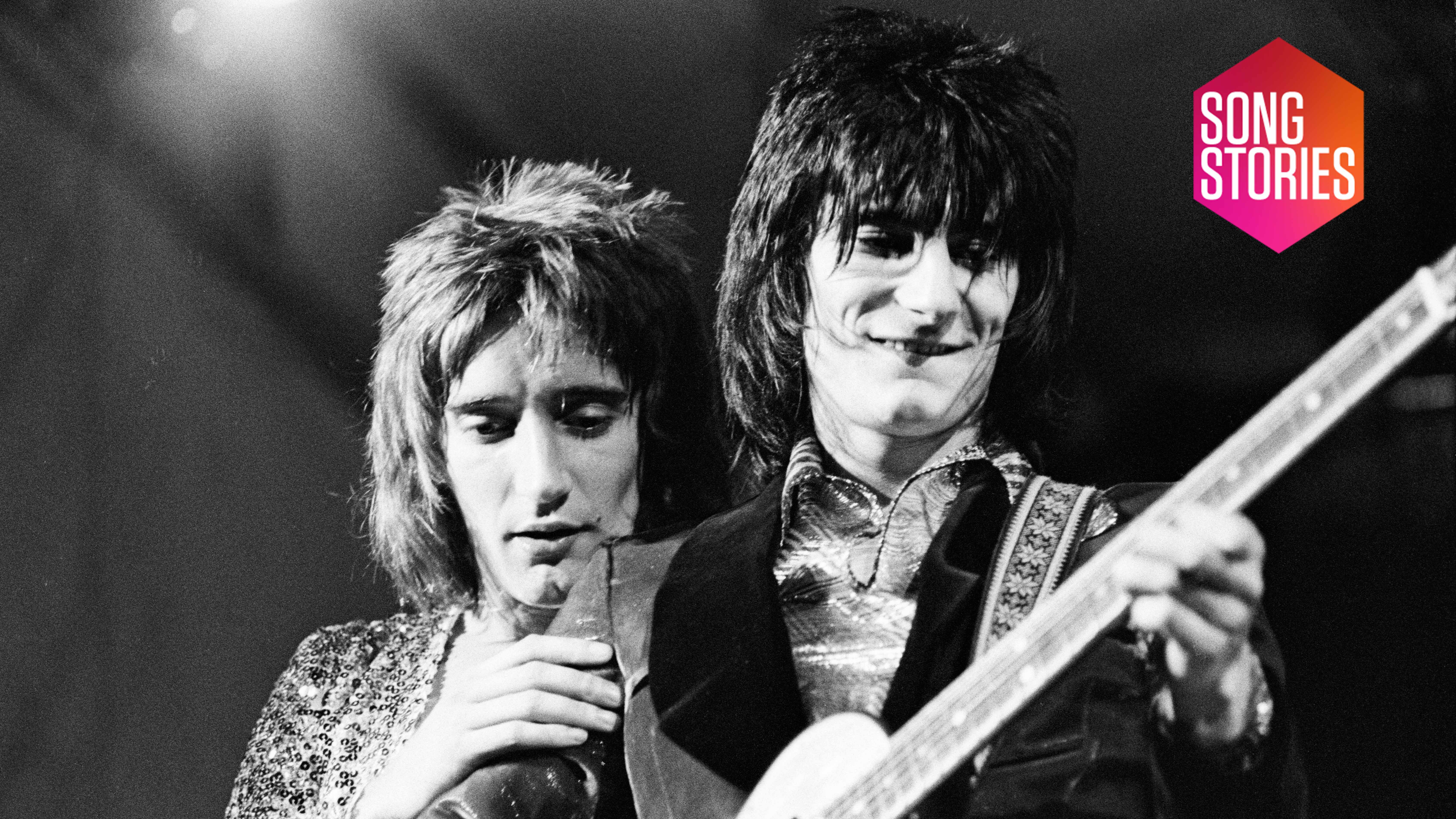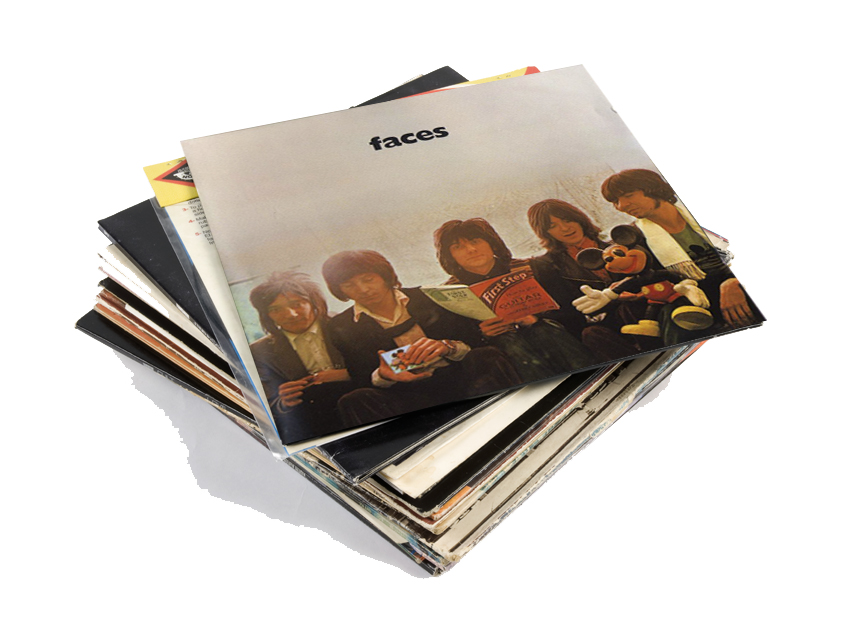Song stories: “When we played Rod Ooh La La, he said, ‘Don’t like it!’” – Ian McLagan on a Faces' classic
“He continued not to like it for 25 years until he recorded a version”

The recording of Ooh La La marks the point when Faces really began to fracture. Rod Stewart famously claimed to dislike the song, even refusing point-blank to record the lead vocals. Bassist Ronnie Lane would grow tired of Rod’s whining as well as his frequent absences from recording sessions, and made the decision to leave the group soon after.
Even Ronnie Wood’s guitar lost the plot. You don’t have to listen too closely to the record to hear Ron’s acoustic buzzing like crazy during the intro riff and solo. In 2011 late Faces Keyboard player, Ian McLagan, shared his fond memories of the instrument, though. “The guitar was a flattop Gibson with a faulty fret,” McLagan recounted “I remember playing it and loving the sound. I later asked him, ‘Do you still have that guitar?’ Ron said, ‘Yes, I had the frets fixed’. I said, ‘No! You’ve just ruined a fucking great guitar!’”
Despite the growing tensions within the group, caused in no small part by the distraction of Stewart’s burgeoning solo career, Ooh La La is proof that Faces could still produce magic live and in the studio. The splintering line-up included refugees from mod legends Small Faces (McLagan, Ronnie ‘Plonk’ Lane and drummer Kenney Jones), a pre-Stones Ron Wood and the vocal chords of Rod Stewart.
Wood and Stewart had also been involved in the mod scene, Ronnie most famously having been in The Birds and done a short stint in The Creation, and both had left The Jeff Beck Group to form the Faces. Ooh La La itself was penned by the two Ronnies: Wood and Lane.
"Ooh La La was an idea of Ron Wood’s,” Ronnie Lane, who died in 1997, told Dave McNarie in an interview on the-faces.com. “I wrote the words to that. I was just entering my ‘hating women’ stage, you know? Loving them and hating them all at the same time. I never realised when I wrote the words to Ooh La La how relevant it was. Everything that I seem to write either comes true or is what’s actually happening, and I haven’t noticed it’s what’s actually happening.”
Ronnie Lane played the first acoustic and Woody played the second part
Wood and Lane’s classic was recorded as the title track to Faces’ fourth and final studio album, released in April 1973. The sessions for the album took place between September 1972 and January 1973 at Olympic Studios in London under the direction of producer and engineer Glyn Johns.
The studio veteran made his bones standing on the opposite side of the control room window from the likes of The Beatles, The Rolling Stones, The Who, Led Zeppelin and Eagles. He also had history with Faces, having produced their 1971 LP, A Nod Is As Good As A Wink… To A Blind Horse and a pair of Small Faces albums: Small Faces (1967) and the psychedelic masterpiece Ogdens’ Nut Gone Flake (1968).
Get the MusicRadar Newsletter
Want all the hottest music and gear news, reviews, deals, features and more, direct to your inbox? Sign up here.
“Ooh La La was recorded in the same studio as Ogdens’ and Small Faces – the two Immediate [label] albums,” remembered Ian. “Same piano, same room, same old desk.” When Total Guitar spoke to the musician it had been almost 40 years since the recording of Ooh LaLa but he still remembered the session that produced its title track.
“Ronnie Lane played the first acoustic and Woody played the second part,” he recalled. “The two guitars were recorded together. I don’t think Ronnie Lane would have played the bass on the live track… No, it would have been drums and the two acoustics live. I played the harmonium [air-driven reed organ] live; the piano solo was an overdub. I assume the bass was an overdub, too.”
He pointed to Woody and said, ‘You should sing that’. So, that’s why Ronnie Wood sang it. An odd choice perhaps, but he sang it so beautifully, I think
Both Rod and Plonk declined to record lead vocals for the track, so the job fell to Ronnie Wood. It has always been assumed that Glyn Johns made the decision to give Woody his first ever lead vocal, but McLagan disputes that. He reckons Rod gave the bassist the nod.
“When we played Rod Ooh La La, he said, ‘Don’t like it!’” laughed Ian. “He continued not to like it for 25 years until he recorded a version,” he added, referring to Rod’s own take on Ooh La La, released on his 1998 covers album, When We Were The New Boys (co-writer Ronnie Lane would also cover it later). “Anyway, Rod said, ‘It’s the wrong key for me’,” continues McLagan. “He pointed to Woody and said, ‘You should sing that’. So, that’s why Ronnie Wood sang it. An odd choice perhaps, but he sang it so beautifully, I think.”
The session hit no further snags, which was, according to McLagan, typical of Faces’ recording dates. “Nothing really took us very long, because we had the great Glyn Johns moving us along,” said Ian. “It never took me long to do my thing. Often, for me, the trick was to get out the way of the guitars!”

Like all the other Faces’ records, Ooh La La sounds totally spontaneous. The band always appeared so disorganised that you imagine them staggering into the studio after the pubs shut to lay down some quick tracks and then heading off to a club. No-one imagined that Faces actually had to rehearse. That’s what Ian McLagan thought, too – until recently.
“I found the original lyrics for You’re So Rude [from A Nod Is As Good As A Wink...] on the back of a date sheet that our office would send us. Ronnie Lane wrote it at my house. Anyway, until I found that, I never thought the Faces rehearsed. I thought that was a myth! But there it is: we had two days of rehearsal and preproduction, then three days in Olympic. So it’s fact. We actually did rehearse!”
Ronnie Wood interview
"A classic compressor for free on Valentine's Day – it must be love!": Universal Audio is giving away an 1176 plugin as a Valentine's gift - here's how to get it and use it
“A magical part is this sidechain with the bass”: Lady Gaga breaks down Disease in new studio video









